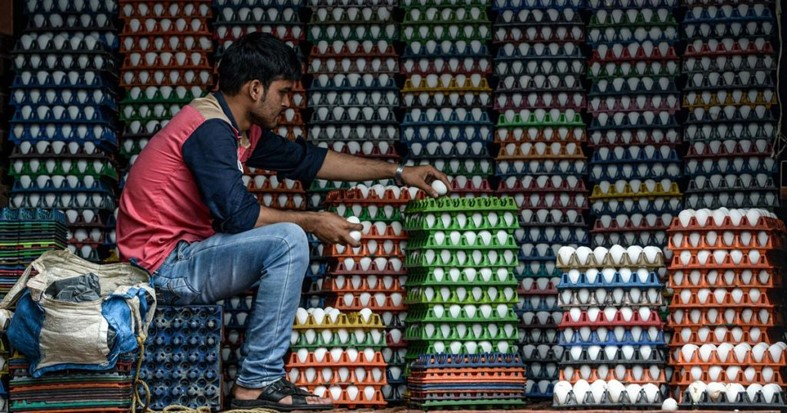
Per capita egg consumption in India has doubled in the
last 20 years and increased more than a hundred times in the last 60 years. Understanding the complexities inherent in this
supply chain is crucial for stakeholders across the board, from farmers to
retailers.
At the heart of the egg supply chain lies the
production stage. Poultry
farms across India play a pivotal role in meeting the nation’s
ever-growing demand for eggs. These farms range from small-scale backyard
operations to large-scale commercial enterprises. Poultry farms constantly face the threat of
diseases such as avian influenza. Implementing robust biosecurity measures
is essential to safeguarding the health of poultry flocks.
Ensuring
a consistent and nutritious diet for laying hens is imperative for maintaining
egg production levels. Challenges related to feed quality and availability can
impact farm productivity. Once eggs are
laid, they undergo a process of collection and grading. This stage involves gathering eggs from nests, inspecting them for
quality, and sorting them based on various criteria such as size and weight.
In
recent years, the adoption of automated grading systems has streamlined the
process of sorting eggs, enhancing efficiency and accuracy Advanced data analytics technologies are
increasingly being employed to analyze egg quality parameters, enabling
producers to make informed decisions and optimize their operations. After grading, eggs are transported to storage
facilities before making their way to market. Maintaining optimal storage conditions is crucial for preserving egg
quality and freshness.
Eggs
are highly perishable and susceptible to spoilage if not stored at the correct
temperature. Cold chain management ensures that eggs remain within the
recommended temperature range throughout the storage and transportation
process. In addition to temperature, controlling humidity levels is essential
for prolonging the shelf life of eggs and preventing moisture-related issue. The final stage of the egg supply chain involves
distributing eggs to retailers and consumers across India. This stage
encompasses a diverse array of players, including wholesalers, distributors,
and supermarkets.
Consumer
preferences for packaging vary, with some preferring traditional cartons while
others opt for eco-friendly alternatives such as biodegradable packaging
materials. To cater to diverse consumer preferences, egg producers often
differentiate their products based on factors such as organic certification,
free-range farming practices, and nutritional attributes
Navigating the complexities of the egg supply chain in
India requires a comprehensive understanding of the various stages involved,
from production to retail. By addressing
challenges related to production, storage, transportation, and distribution,
stakeholders can optimize efficiency and ensure the availability of
high-quality eggs to meet the demands of consumers nationwide.